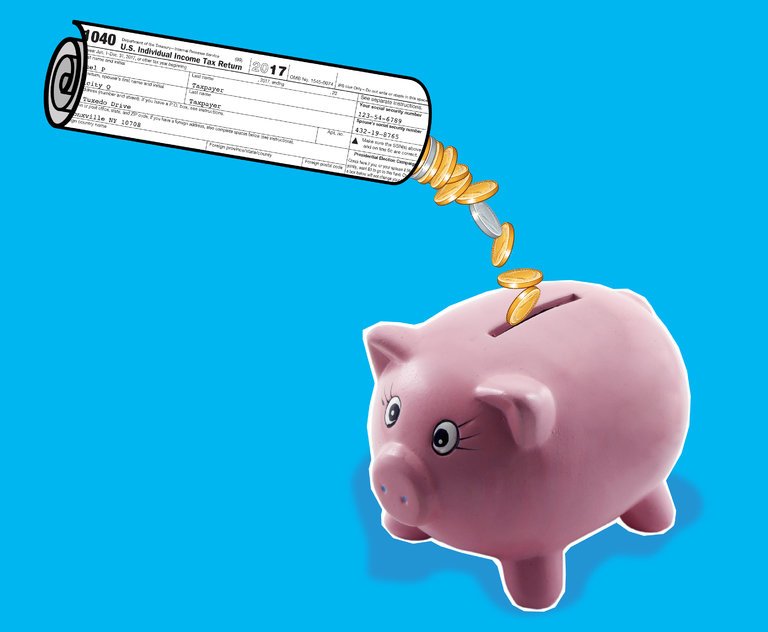How Saving Some of Your Tax Refund Could Win You a Cash Prize
An income tax refund may be the biggest check some people see all year. That makes tax season a great time to jump-start a savings plan, financial experts say.
“Tax time is a critical moment, especially for vulnerable consumers,” said Brian Gilmore, senior innovation manager at Commonwealth, a nonprofit in Boston that focuses on helping people improve their financial security.
Although the economy is humming and unemployment remains low, many people still are not setting aside much cash in savings.
About one in five workers in a survey by the personal finance website Bankrate, published this week, reported not saving any income. And although financial advisers typically urge people to keep enough savings to pay six months of bills, recent research by the Pew Charitable Trusts found that about two in five households lacked the cash to cover a $2,000 expense. The Federal Reserve’s Economic Well-Being report for 2016 found that 44 percent of adults either could not pay an unexpected $400 expense or would borrow or sell something to do so.
The average federal tax refund last year was about $2,900, according to the Internal Revenue Service. To encourage people to save at least a portion of that sum, Commonwealth has teamed up with America Saves, a Consumer Federation of America initiative, to promote the “Save Your Refund” campaign.
Participants agree to deposit all or part of their refunds in a savings or retirement account, or to buy savings bonds. In exchange, they qualify for the chance to win cash prizes. Because many people use part of their refund to pay bills or credit card debt, Mr. Gilmore said, the minimum amount that Save Your Refund participants must agree to save is just $50.
To be eligible for the prizes, participants must first file I.R.S. Form 8888with their federal income tax return. The form allows the splitting of a refund via direct deposit into two or more separate accounts. (It also allows for part of the refund to come in the form of a paper check.)
To qualify for the $100 prize drawings, tax filers must then submit a Save Your Refund entry form, copies of which are available online and at most Volunteer Income Tax Assistance program sites. Each week during tax season, 10 participants will be randomly selected to receive $100.
Each participant can also submit an additional entry for a shot at two $10,000 grand prizes to be awarded after the tax-filing deadline on April 17. (The deadline is two days later than usual this year for several reasons, including a local holiday in Washington.)
Mr. Gilmore said the “prize-linked” approach was one way to motivate people to increase savings, which otherwise can seem like a dreary chore. “It’s a way to use prizes to make savings feel more fun and exciting, and less stressful,” he said. Some research suggests that the potential to earn cash prizes can motivate people to save more.
So far this year, 2,295 people participating in the Save Your Refund campaign have arranged to save just over $1.9 million, an average of about $880 each, said Lindsay Ferguson, outreach coordinator with America Saves.
Here are some questions and answers about saving:
How do I buy savings bonds with my tax return?
You can buy up to $5,000 in Series I savings bonds with your tax refund by indicating the amount you want to purchase on I.R.S. Form 8888. The tax-time bond purchase option is now the only way to buy paper savings bonds, which some people prefer when giving bonds as gifts. You can also buy bonds in digital form, if you prefer.
What kind of interest rates are savings accounts currently paying?
Rates for basic savings accounts have been anemic for years, but that may change as the Federal Reserve proceeds with its plans to raise benchmark rates. Online banks typically offer annual percentage rates of 1.5 percent or more — hardly earth-shattering, but better than the paltry rates offered by big brick-and-mortar banks.
Rates on certificates of deposit are higher, depending on the amount deposited and the term chosen.
How can I track my income tax refund?
The I.R.S. suggests using its online “Where’s my refund?” tool, or its IRS2Go smartphone app.
Ann Carrns - https://www.nytimes.com/by/ann-carrns

